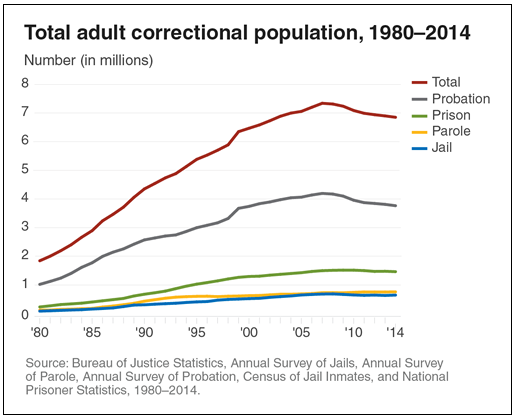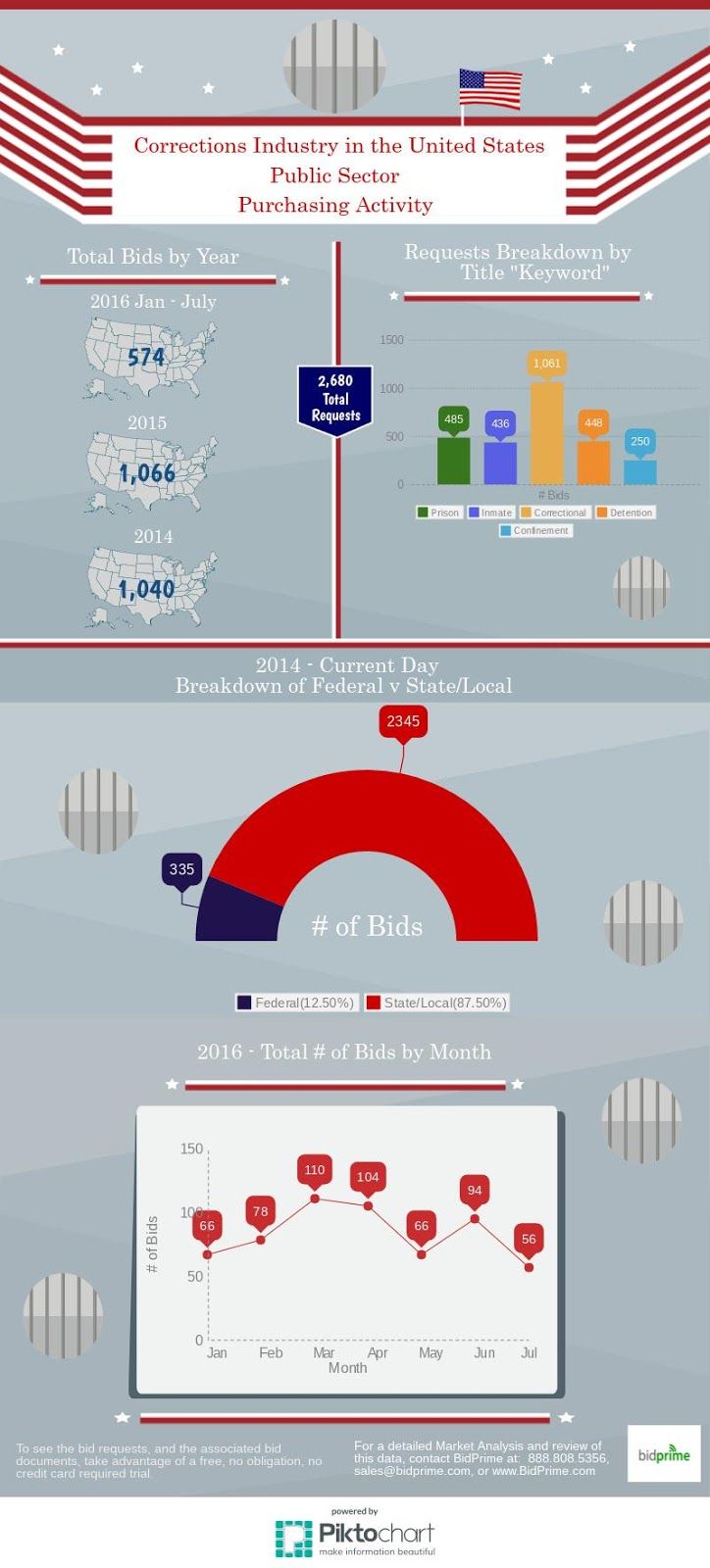How Has Federal Government Move to Private Prisons Led to Purchasing and Opportunity?
In the United States today, the federal prison population is just south of 200,000 inmates. Over the past number of years, the federal government has leveraged the services of private prison companies to house federal inmates.
By now, you have likely heard about or seen the memo from the Office of the Deputy Attorney General proclaiming that the feds are working towards discontinuing the use of privately operated prisons. As a matter of fact, as Sally Yates, Deputy Attorney General, pointed out, the transition process has already begun. The federal government is moving fast on this. As expected, these events have created a significant buzz throughout the corrections industry.

While the change in policy will only involve roughly one-tenth of the current federal prisoner population, that figure still represents between 20-25 thousand inmates. There will be some who will debate the Deputy Attorney General’s rationale that the government does a better job of operating safe, secure and more effective prisons. The triumvirate of companies in play to lose the contracts, the federal government business, are Management & Training Corporation, Corrections Corporation of America (CCA), and The GEO Group.
Who are they? These three companies, clearly most impacted by the announcement, are not bit players in the prison industry. Per their website, The GEO Group, which has facilities in the United States and internationally, operates, or has plans for, 87,369 beds. Management Training Corporation (MTC) produced a swift response to the announcement, ‘Contract Prisons Provide Great Value to Corrections’, demonstrating that they don’t plan to go down quietly.
Per MTC’s website, “MTC safely secures nearly 78,000 offenders and detainees in eight states at 26 facilities annually.” Meanwhile, CCA, which has a total bed capacity of more than 80,000, has been active on social media making a case for, you guessed it, continuance of the use of private prisons.
Since the memo hit the streets, it was a safe bet there would be some push back. The incarceration business is huge business in the United States and not merely for the three companies “directly impacted”. It matters not whether you’re talking private or public facilities, many individuals and businesses are involved in this vast industry.
Per the Bureau of Justice Statistics (BJS), there are well over two million adults incarcerated in the United States. While that number is trending downwards from a decade ago, it’s still startling to consider the current inmate population figure, state, local and federal, would stand somewhere between the population of Chicago, Illinois (2.7 million) and Houston, Texas (2.2 million). See the following BJS graph illustrating trends in the U.S. adult correctional population.

In order to house, control, and provide for two million plus people, state, local, and federal agencies solicit and purchase a vast number of services, solutions, equipment, and products. Should the Deputy Attorney General’s intentions come to fruition, the quantity of bid requests will climb beyond the already substantial activity we illustrate in this infographic.
U.S. Corrections. Historical review of purchasing activity:

Sample Active Bids/RFPs
Corrections
There is some of the evidence from our database confirming how the Corrections industry growth is undeniably influenced by public sector procurement. Obviously, it is not strictly private prison companies leveraging government business. If you/your business provide applicables, are you positioned to identify, pursue and gain the business?
For more information on these requests, and others in the Corrections industry, call us at 888.808.5356, or visit BidPrime.
